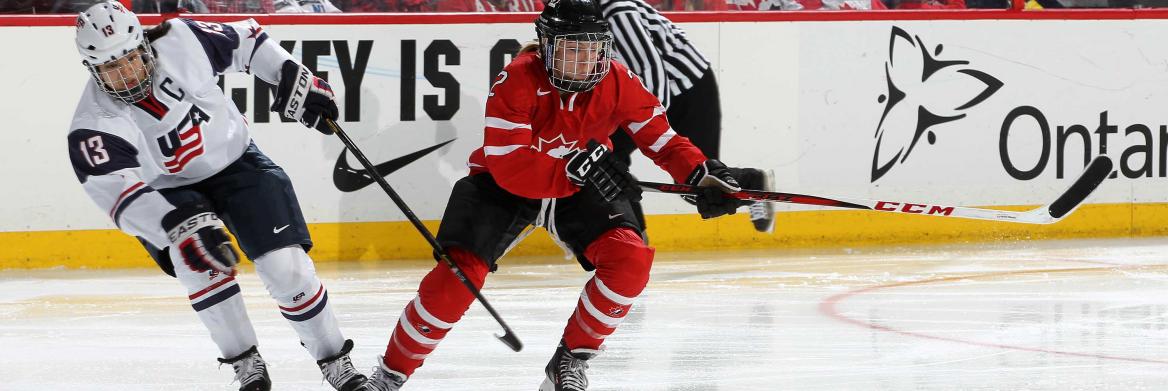After winning three Olympic gold medals with Canada's national team, hockey player Meghan Agosta decided to pursue her second passion to become a police officer. Now working as a constable in Vancouver, B.C., the 29-year-old reflects on her transition from hockey star to rookie cop. Amelia Thatcher spoke to Agosta about how she stays on her game — on and off the ice.
How has your hockey career helped with policing?
The parallels between policing and hockey are huge. The biggest component between the two is being in a team environment, which I love. Hockey and policing both leave a positive legacy. Stepping out onto the ice and starting my shift, you never know what you're going to get. In policing and in hockey, you need to continue to train to be prepared for the uncertainty. You need to be ready both physically and mentally. Being a professional athlete has prepared me to stay fit, cope with stressful situations, overcome challenges and understand the importance of being a team.
How has policing impacted your hockey game?
Playing for Team Canada isn't a right, it's a privilege. Being on the force for the past few years, I've realized that I've become more thankful, appreciative and humble. One philosophy that I've learned in policing that I use in hockey is to improvise, adapt and overcome. It's more of my mindset and mental preparedness. It's really changed me and my perspective on the game. I've become more of a leader, I've put the little things aside, I'm living in the moment and I'm not taking things for granted.
How do you balance both?
I'm very organized and I always plan ahead. I take each day at a time and try to enjoy the moment. My focus when I'm in Vancouver is policing. Policing is a very dangerous career, so I need to be 'on' at all times. When I'm working, I need to make sure I'm there and aware of my surroundings and focus just on work. Since becoming a police officer, it hasn't been tough to stay fit. Working out almost every day has allowed me to stay in shape for both hockey and policing.
When I get called to play for Canada, my mind switches from policing to hockey. I don't worry about what's going on in Vancouver. I'm focused on what I can do to help make a difference. Depending on where I'm at — policing or hockey — I prioritize that. Growing up I have always had to plan ahead, be responsible and be resilient.
What's your average week like?
My weeks are very busy not only working shift work, but also focusing on training and then having a personal life. Family is very important to me and I think it's important to find the balance between being a professional athlete, working full time and spending time with the ones I love.
What makes it worth it?
Being able to help make a difference in peoples' lives. Yes, I have a career, but I have a career that I'm very passionate about. I take pride in going to work and enjoy what I do. As police officers, we work 24-7 — we're on call all the time. When someone calls, we're there to help. Going into work, you never know what call you'll be dispatched to and whose life you'll change and that gives me a tremendous sense of pride.
Looking forward, where do you hope to be?
Balancing hockey and policing has been one of the toughest challenges I've had to face. I'm making these sacrifices because I want to continue to represent Canada at various tournaments. I know I can continue to help Canada be successful and still being so young, my leadership skills, experience and talent can help Canada bring home another gold medal. Not looking too far ahead, my goal is to go to another Olympic Games, which are being held in South Korea in 2018.
And as far as policing goes, right now I'm still focusing on learning every day. Looking ahead, I have set goals of working with a surveillance team, an investigative unit and being a part of the Canine Unit. Also I want to mentor junior members, field train and become a leader, but I have 30 years to get this done.
When I retire from hockey, I want to start my own family and give my kids the opportunities my parents gave me as a little girl.
